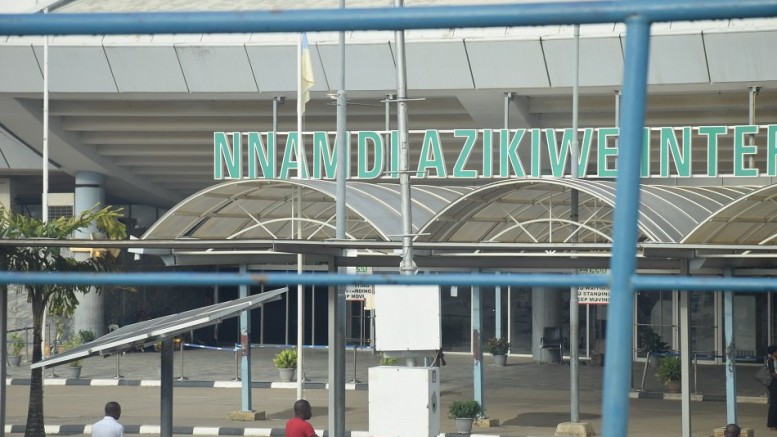
Nigeria opens new airport terminal, moving toward regional air transportation hub
ABUJA: Nigerian President Muhammadu Buhari on Thursday inaugurated the newly built Nnamdi Azikiwe International Airport terminal in the capital city of Abuja, saying the “ultra-modern” facility will accelerate the government’s goal to develop Nigeria into a regional air transportation hub.
At a ceremony held for the inauguration of the China-assisted project, Buhari acknowledged aviation as a catalyst for economic growth, saying Nigeria aims to assume a leadership position in aviation in Africa.
“This event today reflects Government’s deliberate policy to sustain the development of Nigeria’s infrastructure. We are gradually closing the infrastructural deficit bedeviling our country,” Buhari said.
In his speech, Buhari noted that the Nnamdi Azikiwe International Airport terminal is the first to be connected to a rail transport system in the country and the West African region.
The new international airport terminal, the largest in West Africa, is a world-class aviation transport facility designed to handle 15 million passengers annually, open more convenient air routes and contribute immensely to the economic and infrastructure development of Nigeria.
The new terminal, the second in a series of four new terminal projects in Nigeria, was constructed in partnership with the Chinese government. In October, a terminal was inaugurated at Port Harcourt Int’l Airport in southern Nigeria. The other two terminals are respectively in Kano and Lagos.
These four terminal projects were supported by the Export-Import Bank of China and the Nigerian government.
The contractor of the terminals is the China Civil Engineering Construction Corporation (CCECC), which is involved in many ongoing infrastructural projects in Nigeria, including rail and road construction.
These four new international airport terminals are counted on to modernize airport operation and passenger facilitation across Nigeria, enabling the Nigerian government to realize its set objective of elevating its aviation industry to meet international standards.
Travelers and users of the major airports in Nigeria have long complained about congestion, insufficient facilities and outdated equipment.
The new terminal at Nnamdi Azikiwe has 72 check-in counters, five baggage collection carousels, 28 immigration desks at arrival and 16 at departure, eight security screening points and eight passenger boarding bridges.
It also has a walkway to link the Nigerian capital metro rail with an additional apron linking the domestic wing of the airport and many other facilities.
Nigerian Aviation Minister Hadi Sirika said the facilities were properly designed and laid out in accordance with modern requirements for airport operations.
Sirika said the airport is strategic to Nigeria, as the gateway to the nation’s capital, and is the second busiest airport in the country.
“Likewise, the Nnamdi Azikiwe International Airport is the fastest growing in passenger traffic in West and Central Africa with an average growth rate of 8 percent,” Sirika said.
Chinese Ambassador to Nigeria Zhou Pingjian, noting that the most effective way to develop an economy is to provide transportation infrastructure, urged the Nigerian government to continue to improve the sector.
Zhou said the completion of the capital international airport terminal project has added impetus to the mutually beneficial China-Nigeria cooperation, noting that the Chinese government is committed to partnering with Nigeria to build long-lasting infrastructure in the country.
Source: Xinhua

